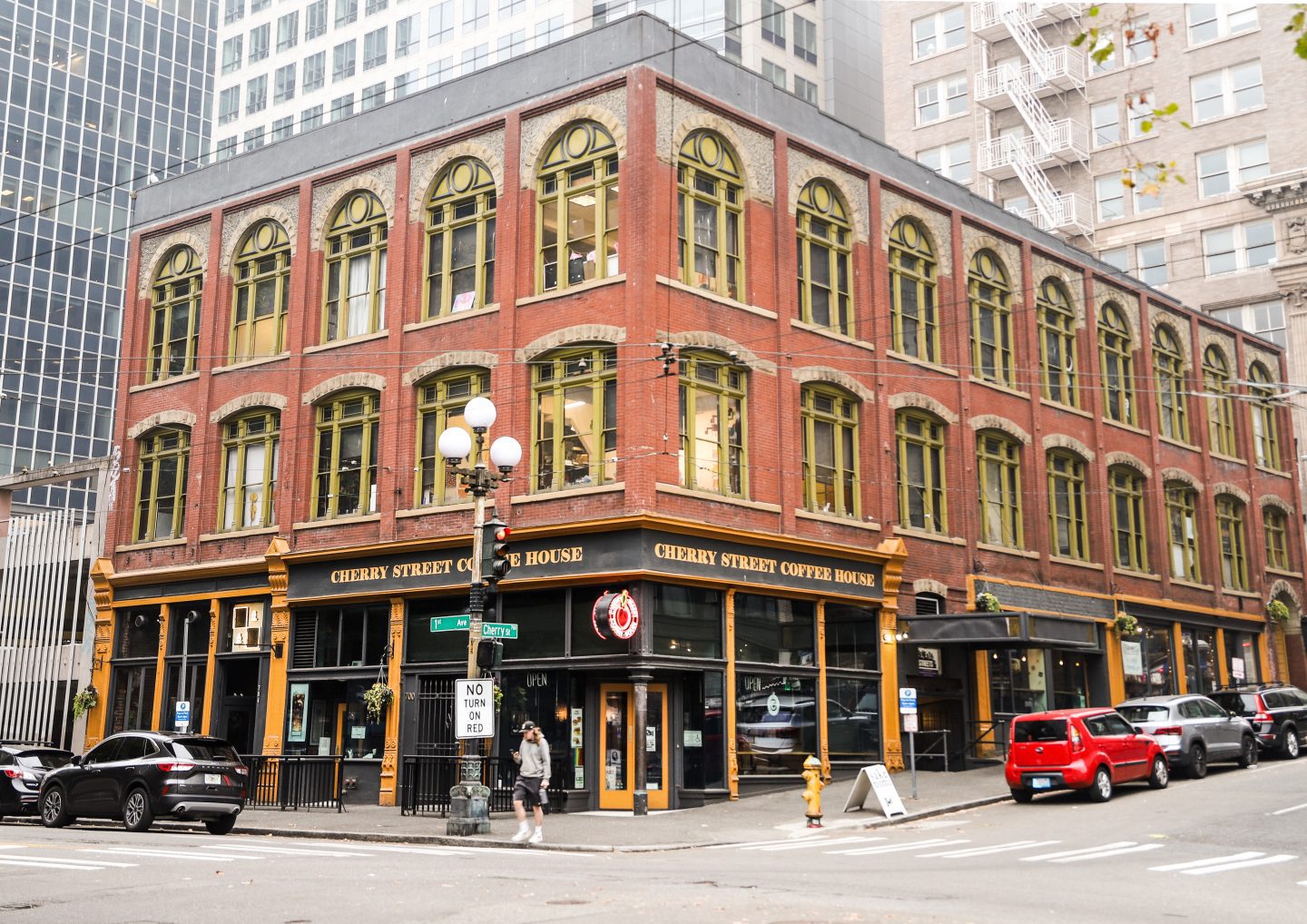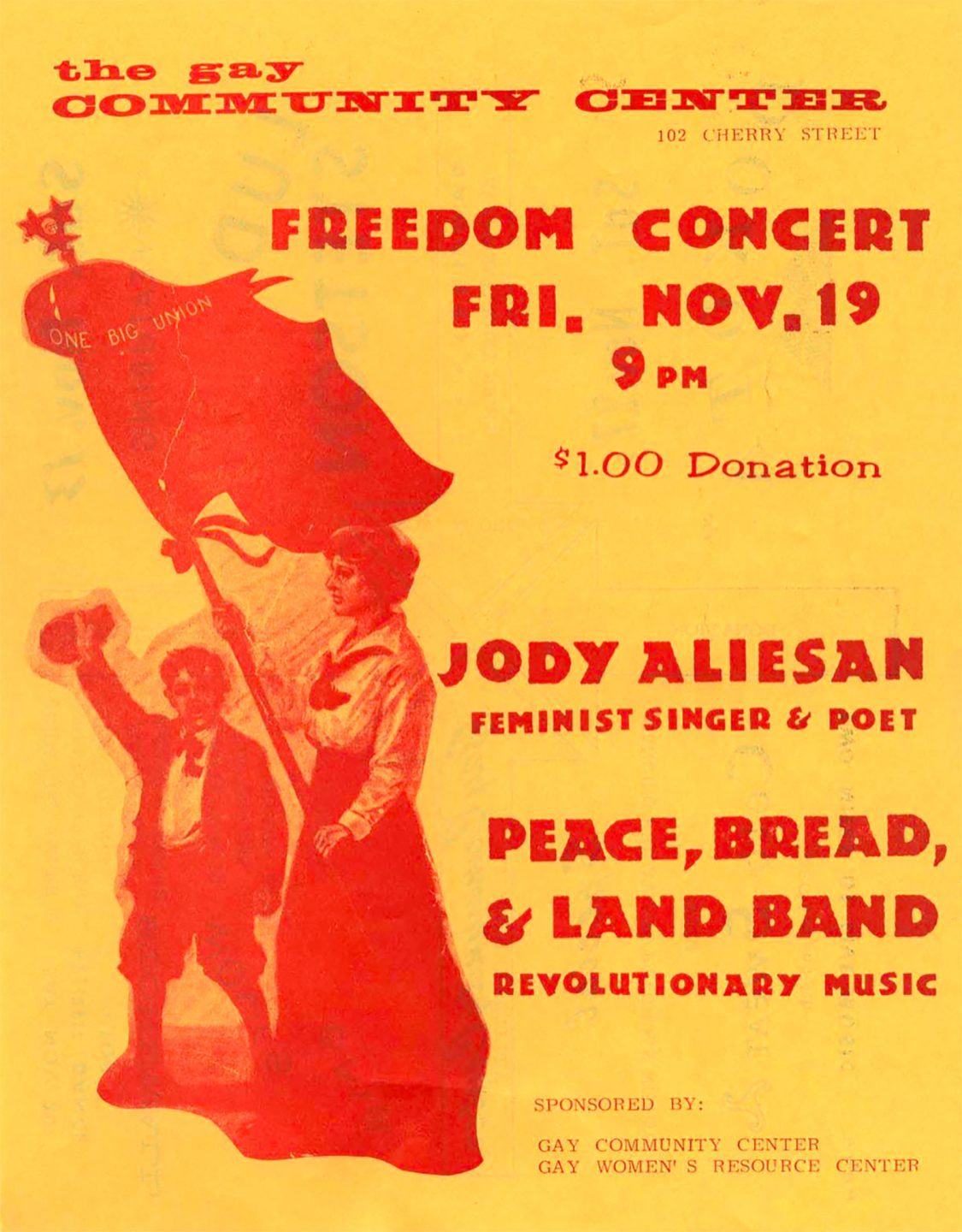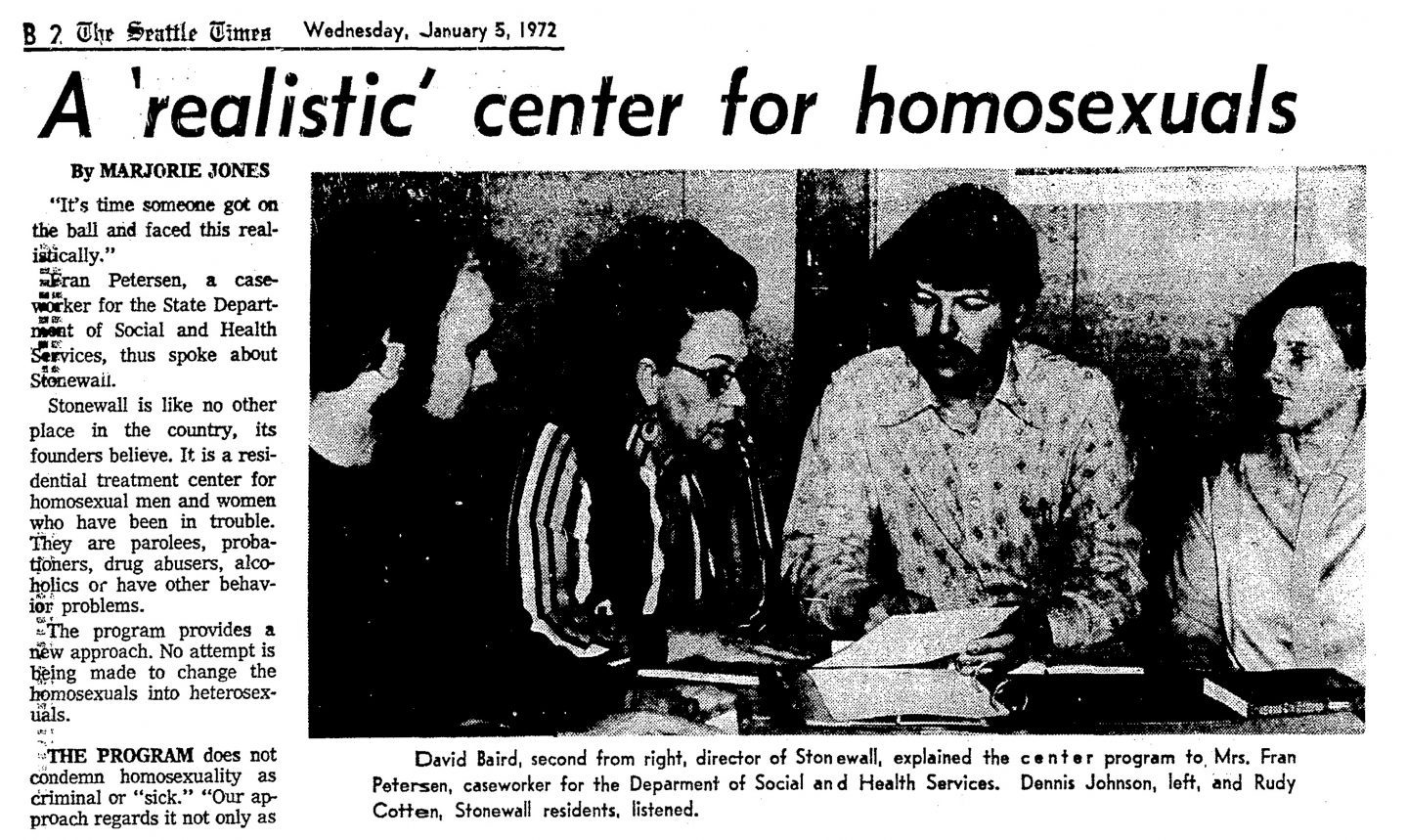-
Gay Community Center
102 Cherry Street
Where could you hang out if you were an LGBTQ+ person who didn’t drink alcohol? Or weren’t old enough to legally drink? For years, there were few options. The Gay Community Center set out to change that. The alcohol-free center was in a basement that, oddly enough, had been a Prohibition-era speakeasy. Local activists Paul Barwick, Robert Perry, and Faygele ben Miriam started the center, and they set out to infuse it with a coffeehouse vibe, complete with a dance floor. Because they were broke, that esthetic was hard to accomplish, so they improvised: They fashioned tables from found tabletops that were mounted on junkyard automobile wheels. It was, as Barwick would later describe it, “tacky, tacky, tacky.”
It was also popular. By the end of its inaugural year, more than 2,000 people had traipsed down the stairs to enjoy the space. On top of that, the center benefited from the contribution of more than 4,000 volunteer hours. The center was a success, by every measure, but its success was no countermeasure to its financial woes. When the landlord wanted to raise the monthly rent from $175 to $375, organizers had no other option but to close its Pioneer Square home at the end of 1972. A couple years later, the center opened on Capitol Hill, where it remained until 1977.
The former center is now the site of Beneath the Streets, an underground history tour.
While not a stop on this tour, the Northwest AIDS Foundation also was nearby, at 619 3rd Avenue. The foundation began in 1983 but didn’t open an office until 1986. By then, it was well on its way to addressing multiple goals: raising money to support people living with HIV/AIDS and helping people facing critical health issues untangle the governmental bureaucracy that dictated disability payments. The group also created educational and safe-sex campaigns for gay men, including “Rules of the Road,” which promoted condom use. It was the city’s first safe-sex campaign.
But these were difficult times, heart-crushing times. Not only did community members face the potential deaths of friends and lovers, not to mention their own possible deaths, they also confronted unapologetic homophobia and AIDS hysteria. In the first year the office was open, a Seattle plumbing company, in response to an article printed in a trade journal, refused to send plumbers to unclog the foundation’s sink, for fear a plumber might contract HIV.
Sinks aside, NWAF continued to assist those living with HIV/AIDS, even if its actions and attitudes put it in conflict with groups that wanted more radical action, such as the ACT UP – Seattle. But as more LGBTQ+ people found the services, and community, they needed on Capitol Hill, NWAF also made the switch. It relocated in the 1990s to Capitol Hill. The foundation merged with other nonprofits such as the Chicken Soup Brigade and Evergreen Wellness Advocates, and now they’re collectively known as Lifelong.


